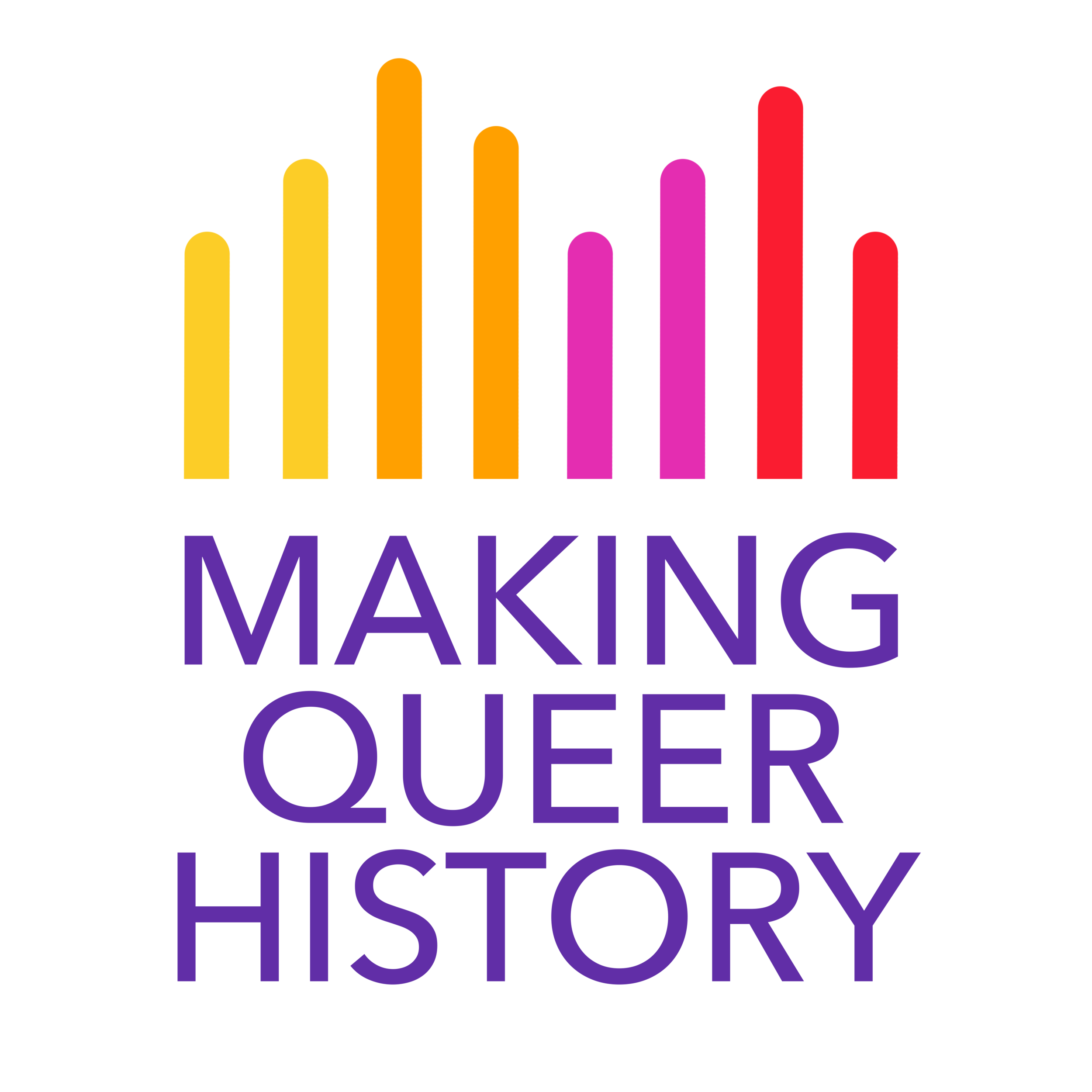FannyAnn Viola Eddy
A black and white photo of FannyAnn Eddy, dark skinned black woman with a black pixie cut. She wears a white collared button up and looks thoughtfully at the camera.
Content warning for rape, murder
"We live in fear.”
– FannyAnn Viola Eddy
A Sierra Leonian queer rights activist, FannyAnn Viola was faced with an uphill battle to win respect and support for the community she publicly admitted to being a part of. Her legacy has largely been defined by her indisputable bravery and her choice to become outspoken when silence was an option.
FannyAnn Eddy was born in Sierra Leone on June 14, 1974. From the years 1991 to 2002, her home country was engaged in a violent civil war that took many lives and disrupted its legal system's development. Even before the war, Sierra Leone had a complicated series of laws to address the queer community.
While laws making sex acts between men (and those viewed as such) illegal, existed, there were no similar laws criminalizing sex acts between women—likely because the idea of two women in a sexual relationship was deemed "ridiculous" or even impossible. This means that Eddy could be out as a lesbian without risking arrest, but it does not mean she was safe. It simply means that she had a freedom that many other members of her community did not.
Early in life, FannyAnn was forced out of her country and into a refugee camp because of the civil war. Despite the danger she lived in, being both a refugee and queer, Eddy was never silent. In those years, Eddy revealed the strength of her character and compassion.
She could have reasonably gone on living her life in safety because of the freedom Sierra Leone’s convoluted laws gave her, but she didn’t. She fought to have the needs in her community acknowledged, and she fought hard, not stopping a moment for convenience or even her own safety.
When she returned to her home in 2002, Eddy founded SLLGA (Sierra Leone Lesbian and Gay Association), the first organization of its kind in Sierra Leone. She worked to fight homophobic and transphobic laws, focusing on the difference between the treatment of queer and cis/hetero incarcerated people. She spoke at the UN about how such inequality would lead to the belief that crimes against queer people were acceptable. As she said in her speech:
“Silence creates vulnerability. You, members of the Commission on Human Rights, can break the silence. You can acknowledge that we exist, throughout Africa and on every continent, and that human rights violations based on sexual orientation or gender identity are committed every day. You can help us combat those violations and achieve our full rights and freedoms, in every society, including my beloved Sierra Leone.”
Unfortunately, the bill she had hoped to pass failed due to a lack of support, despite her intense efforts to push it forward. That did not stop her efforts, though. Eddy continued her activism and outreach in different areas with new and equally bigoted opponents.
Despite the huge amount of political activism she undertook, Eddy also managed to have a life within the queer community as an advocate and a member. She was known to be charismatic and a good friend to many. She had a partner named Esther Chikalipa and a son. She was known to be a loving mother, calling her son every day, no matter where she was travelling.
Her powerful and joyous life makes the next part of her story that much more horrific.
FannyAnn Viola Eddy was killed in her office in 2004 by a group of men who sexually assaulted her before murdering her. To this day, her murder is unsolved—an example of the police force’s deliberate incompetence when dealing with hate crimes against the community. Though they had one man in custody for several days, he quickly “escaped,” and there was never any trial. No other men were charged, and the police refused to acknowledge that it was a hate crime.
Even her death could not stop her effect on the world; the Hirschfeld Eddy Foundation was founded in 2007 and works to this day to provide help for queer people who are in need in all parts of the world. There exists the FannyAnn Poetry Award, which works to promote queer poets and their work. Sierra Leone Lesbian and Gay Association, founded by FannyAnn, continues her work. FannyAnn’s name may not be well known in many circles, but her impact on the world is widespread and can still be seen today.
Despite all the beauty birthed after her death, it is worth recognizing that FannyAnn should have been alive to see all that was created in her name. Her death was the result of meaningless, narrow-minded violence. Nothing good came of her murder, and nothing good ever could. The queer community deserves to be more than a community of murdered martyrs. FannyAnn deserved better.
REFERENCES AND FURTHER READING
Disclaimer: some of the sources may contain triggering material
Ericsson, F. (2015, November 23). Remembering FannyAnn Eddy. World Politics Uncovered. Retrieved from https://worldpoliticsuncovered.wordpress.com/2015/11/23/remembering-fannyann-eddy/
Fannyann Eddy (1974-2004). (n.d.). Hirschfeld-Eddy Foundation. Retrieved from http://www.hirschfeld-eddy-stiftung.de/en/foundation/about-us/names/fannyann-eddy/
Sierra Leone Gay Activist Killed. (2004, October 5). BBC News. Retrieved from http://news.bbc.co.uk/2/hi/africa/3716768.stm
Sierra Leone: Lesbian Rights Activist Brutally Murdered. (2004, October 5). Human Rights Watch. Retrieved from https://www.hrw.org/news/2004/10/05/sierra-leone-lesbian-rights-activist-brutally-murdered
Sierra Leone: Update - Alleged FannyAnn Eddy Murderer Reportedly Escapes Police Detention in Sierra Leone. (2005, July 15). Outright Action International. Retrieved from https://www.outrightinternational.org/content/sierra-leone-update-alleged-fannyann-eddy-murderer-reportedly-escapes-police-detention
Testimony by FannyAnn Eddy at the U.N. Commission on Human Rights. (2004, October 4). Human Rights Watch. Retrieved from https://www.hrw.org/news/2004/10/04/testimony-fannyann-eddy-un-commission-human-rights
Victor Salvo. (n.d.). FannyAnn Eddy. Legacy Project Chicago. https://legacyprojectchicago.org/person/fannyann-eddy





